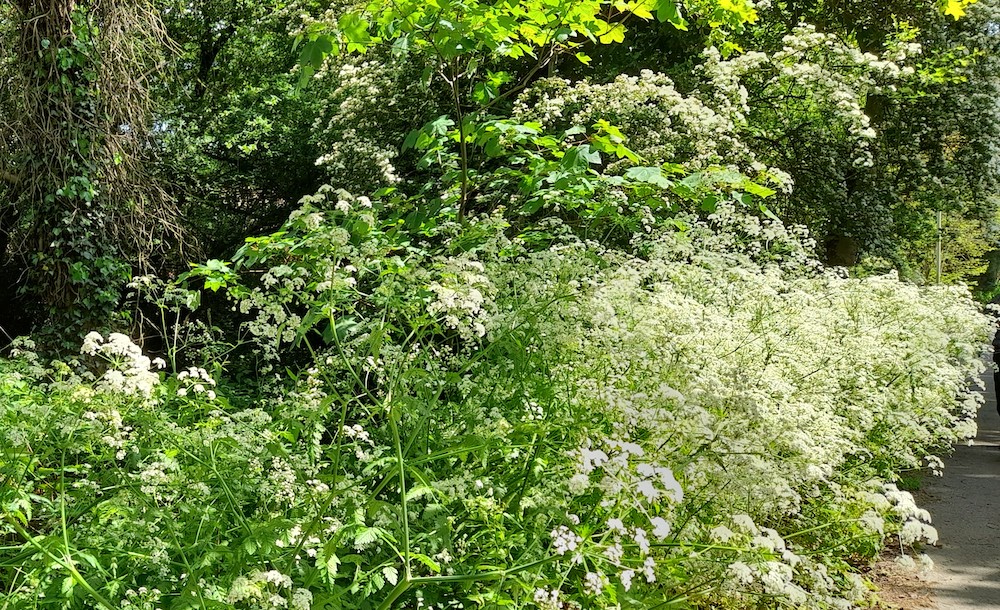Sonnet 51 ("Thou art indeed just, Lord") By Gerard Manley Hopkins
Justus quidem tu es, Domine, si disputem tecum; verumtamen
justa loquar ad te: Quare via impiorum prosperatur?" &c.
Thou art indeed just, Lord, if I contend
With thee; but, sir, so what I plead is just.
Why do sinners’ ways prosper? and why must
Disappointment all I endeavour end?
Wert thou my enemy, O thou my friend,
How wouldst thou worse, I wonder, than thou dost
Defeat, thwart me? Oh, the sots and thralls of lust
Do in spare hours more thrive than I that spend,
Sir, life upon thy cause. See, banks and brakes
Now, leavèd how thick! lacèd they are again
With fretty chervil, look, and fresh wind shakes
Them; birds build – but not I build; no, but strain,
Time’s eunuch, and not breed one work that wakes.
Mine, O thou lord of life, send my roots rain. [1889]
The epigraph of this traditional Petrarchan sonnet (14 lines, rhyming ABBAABBA in the octet, and CDCDCD in the sestet) has been taken from Psalm 119 of the Vulgate, St Jerome's Latin translation of the Bible, dating from the early fifth century: the octet opens with a rendering of it in English. Hopkins goes on to say that if he contends (or argues) with God, He proves to be just, but then adds that what he, the poet, is pleading is also just. He asks God why sinners prosper in this world, whereas all that he attempts to do ends in failure and disappointment. He holds God responsible for this injustice and says that even if He (who is the poet’s friend) were his enemy he would not have defeated and thwarted him in a worse manner. He goes on to rephrase the question asked in the epigraph and in the first four lines of the poem: why do those people who are "drunk" with and enslaved by ("sots and thralls of") lust thrive much more than he himself who has given his entire life to the service ("cause") of God? Something of the depth of Hopkins's feelings here can be gauged form the fact that he told his good friend Robert Bridges that the poem should be read very slowly and deliberately ("adagio molto and with great stress," especially on the words "Why," "sinners" and "Disappointment" (Gardner 246).

A bank of wild parsley in May (photograph by JB).
After thus contrasting his own plight with the success and prosperity of sinners and lustful people, the poet notices, in the next five and a half lines, how everything in nature is creative, renewable and fruitful — parks and thickets ("brakes") are full of thick leaves, and they are laced or intertwined with "fretty chervil" (wild parsely, with fretted leaves), and they are shaken by fresh wind; the birds build their nests – whereas he himself cannot "build" or create anything even though he tries hard ("strain") to transcend time (and not be just "time’s eunuch" by remaining unproductive) by creating a work (e.g. poem) that will "wake" or last forever. In the last line, he offers a prayer to God (who is "the lord of life") to send his dry roots rain (i.e. give him inspiration), so that he may be fruitful and creative like the various manifestations of nature.
The sense of grievance here is obvious, but this is not to be counted among Hopkins's so-called "Terrible Sonnets" ("To Seem the Stranger," "I Wake and Feel," "Patience," "My Own Heart," "Carrion Comfort," and "No Worst, There Is None"). In fact, Dennis Sobolev picks out distant echoes in the poem of Hopkins's other, joyous descriptions of spring: "'fresh wind' can be read as the last echo of 'God’s Grandeur,' where 'the Holy Ghost over the bent / World broods with warm breast and with ah! bright wings.' By the same token, a mention of 'fretty chervil' can be interpreted as a somewhat cryptic reference to the world’s 'dappleness' in 'Pied Beauty'" (328). The connections are all rather tenuous. Yet it is clear that in this 1889 sonnet Hopkins finds the season itself, and nature more generally, instinct with the spirit of God, and responds to it accordingly. Thus, although his faith is seriously challenged by what he experiences in this world, where the wicked prosper and the good and the pious servants of the "lord of life" suffer, it is not fundamentally shaken. The poet ends by offering up a heartfelt prayer. In this way, the poem can be seen to dramatize the frustrations that a truly religious man has to undergo in the course of his life, which he has chosen (and still choses) to dedicate to the service of God.
Bibliography
Banerjee, A. Modern English Poetry: A Selection, with a critical introduction and annotations. 1982. Tokyo: Kaibunsha, 1990.
Gardner, W. H. Gerard Manley Hopkins" Poems and Prose. London: Penguin, 1963.
Sobolev, Dennis. The Split World of Gerard Manley Hopkins: An Essay in Semiotic Phenomenology. Washington, DC: The Catholic University of America Press, 2011.
Created 20 May 2023
Last modified 9 May 2025